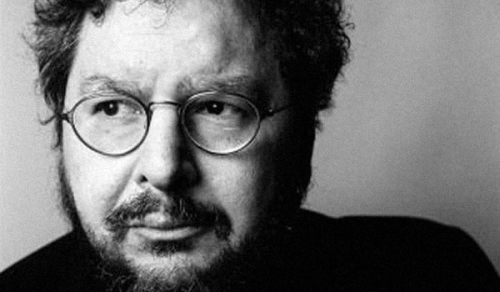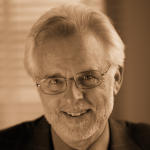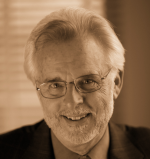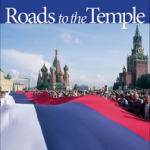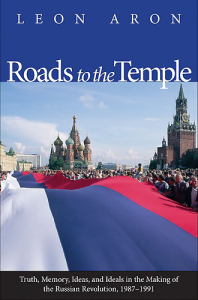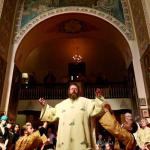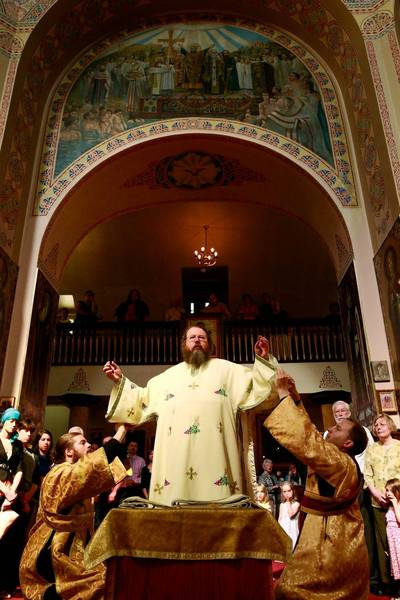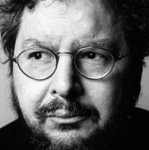
Deprecated: trim(): Passing null to parameter #1 ($string) of type string is deprecated in /home/aoiusa/public_html/wp-content/plugins/sexybookmarks/public.php on line 388
Deprecated: trim(): Passing null to parameter #1 ($string) of type string is deprecated in /home/aoiusa/public_html/wp-content/plugins/sexybookmarks/public.php on line 394
Deprecated: trim(): Passing null to parameter #1 ($string) of type string is deprecated in /home/aoiusa/public_html/wp-content/plugins/sexybookmarks/public.php on line 400
Source: National Review Online | Kathryn Jean Lopez
America’s elites now disdain the rest of America.
David Gelernter, the Yale professor of computer science, has an alarming yet cautiously exuberant book out, America-Lite: How Imperial Academia Dismantled Our Culture (and Ushered In the Obamacrats). He tells us where we are and how and why we got here, and gives readers a pep talk, encouraging them to be the light (not “lite”) we need. He talks about it all with National Review Online’s Kathryn Jean Lopez.
KATHRYN JEAN LOPEZ: Is there a precise moment where you can say, yes, yes, this is the moment when America went “lite”?
DAVID GELERNTER: The Cultural Revolution itself began right after World War II (when our leading colleges were still in the hands of the generally centrist WASP elite) and culminated around 1970, when intellectuals were in control, and preparing to use these universities as platforms for imposing their worldview throughout the schools’ establishment and cultural elite.So America went lite starting around 1970. The big change was complete by the 1980s: In ’83, “A Nation at Risk” described the mediocrity of our schools; in ’87, Bloom’s Closing of the American Mind described the intellectual corruption of our universities. Both times, these disasters had (of course) already happened. And Bill Bennett, secretary of education under Reagan from ’85 to ’88, repeatedly drew the nation’s attention to this cultural disaster.
So by (say) 1990, America-Lite was a done deal. Each year since, we’ve seen a new crop of largely ignorant high-school and college graduates (children we have failed to educate) released into an ever dumber and denser cultural atmosphere.
LOPEZ: Is it a bit dramatic to call what’s happened here an actual “cultural revolution”? Was there blood? Mandates?
GELERNTER: American culture had its throat slit and bled to death at our feet. Isn’t that revolutionary enough? The blood is only metaphorical, but to the 40 percent of [all] infants [who are] born to single mothers this year, the consequences will be real.
In a piddling few decades, the world’s most powerful, influential cultural establishment happened to get demolished and rebuilt from the ground up. What had been basically a Christian, patriotic, family-loving, politically moderate part of society became contemptuous of biblical religion, of patriotism, of the family, of American greatness. The American cultural elite used to resemble (more or less) the rest of America. Today it disdains the rest of America. That’s a revolution.
Example: Look at (just) the arts in 1960 vs. 1990. In 1960, the whole country knew Robert Frost’s poetry; Leonard Bernstein was reaching large TV audiences for classical music with his Young People’s Concerts on CBS; theater and ballet were thriving, reaching larger audiences all the time; Hemingway was only the most famous of America’s serious novelists; and American avant-garde painting was a topic for Life magazine. (And European artists such as Picasso, Matisse, Chagall, and Giacometti were international celebrities.) In 1990, silence. High culture had become a term to laugh at. No blood; no mandates. Just an empty lot covered with weeds where the art used to be.
LOPEZ: Why is the “smashing of etiquette” so important? When I let — and expect and welcome — a man to hold the door for me and let me have the first cab again, will I know we’ve come through this storm?
GELERNTER: If these things are done in the archly cynical, self-conscious, self-mocking, God-forbid-I-should-actually-be-serious style in which we specialize (we post-cultural zombies) then of course they’ll mean nothing.
But if they’re done as a matter of course — like speaking grammatically — then (trivial as they are in themselves) they will speak eloquently about the actor and the society he comes from. These things used to be important because they said “this is an ‘ought’ society where we take our duties as seriously as our rights — not an inch-deep, egomaniac society where our rights are sacred but our duties are all owed to ourselves.”
LOPEZ: What was the “Great Reform” and what’s most important for us to understand about it today?
GELERNTER: In 1945, Yale and Harvard and their colleague institutions, America’s most powerful and influential colleges, were mostly run by and for the WASP elite. They all had intellectuals and scholars among their populations, but the ideal students, faculty, deans, and presidents were social and not intellectual leaders. The Great Reform was a beautiful impulse with dreadful consequences. The major colleges opened their gates to Jews, blacks, women, and other once-excluded groups.
What eventually followed was tragic. As May Day 1970 approached, Kingman Brewster, president of Yale, announced: “I am appalled and ashamed that things should have come to such a pass in this country that I am skeptical of the ability of black revolutionaries to achieve a fair trial anywhere in the United States.” These black revolutionaries were Black Panthers who were on trial for torturing to death one of their own members. They were terrorists and thugs. Or was Brewster expecting — in a sense, legitimizing — an armed insurrection against the American government?
LOPEZ: Why do you, a distinguished professor, call Barack Obama “an airhead liberal”?
GELERNTER: His casual, unscripted comments suggest that he is typical (only more so) of the graduates of his alma maters Columbia and Harvard: Whatever he knows or doesn’t know, he certainly projects no grasp of modern history or any history. He casually rejects the American Creed, which has always centered on American uniqueness, American exceptionalism, America as that city on a hill striving to be worthy to lead the whole world towards freedom, equality, democracy.
Obama doesn’t see it.
LOPEZ: But what about all the talk that he is a deep believer in all that is Left?
GELERNTER: I can’t see that he gives a damn about [being] left-wing or any other principles. He thinks Left and speaks Left because that’s what seems natural to him, where he’s comfortable, what he was trained to think. But did he walk union picket lines, as he promised to? Did he lead the country to a better understanding of cap-and-trade and the horrors of carbon emissions, or (say) a better understanding of the need to protect women from vicious Taliban rule in Afghanistan? Does he care about democracy? If so, why did he support card-check; why does his attorney general oppose photo-ID requirements for voting?
LOPEZ: And a “PORGI (Post-Religious Globalist Intellectuals) establishment.” Is that to get you tea-party cred?
GELERNTER: If we don’t understand who’s running our leading colleges, we can’t even begin to understand our own culture. Our most powerful colleges have gigantic cultural influence through their alumni, graduate, and professional schools (especially their law, journalism, business, and education schools) and their direct influence on sister institutions throughout the nation. So who’s in charge? Once upon a time, there was a powerful WASP elite in this country. Obviously they weren’t all the same, and obviously we can generalize (either that or we can’t think). The WASP elite on the whole was politically moderate and Christian.
And what sort of people are running our powerful colleges today? Or are they so diverse, it is impossible to generalize?
In fact they’re radically un-diverse. They’re not all the same, there are dissenters, but culturally they are far more uniform than the old WASP elite ever were. You won’t find lots of church-goers among them. You won’t find lots of patriots. You will find plenty of intellectuals. You can call the PORGI establishment whatever you like, but there’s no way around the fact that the culturally uniform, conformist group in powerful positions at top colleges are likely to be post-religious and globalist and intellectuals — or at least intellectualizers, would-be intellectuals. So call them whatever you like, but they’re PORGIs to me.
LOPEZ: Why is that “post-religion” bit so important?
GELERNTER: Post-religious thinkers don’t even live on the same spiritual planet as Protestant, Catholic, and Jewish Americans. Old-time atheists struggled with biblical religion and rejected it; modern post-religious thinkers struggled with nothing. Since the Bible and biblical religion underlie the invention of America, it’s hard (unsurprisingly) for post-religious people to understand America sympathetically. Abraham Lincoln’s Second Inaugural, the most sacred of American texts, is (precisely) a sermon describing North and South as equally guilty in God’s eyes for the sin of slavery and, ultimately, for the war itself:
Fondly do we hope, fervently do we pray, that this mighty scourge of war may speedily pass away. Yet, if God wills that it continue until all the wealth piled by the bondsman’s two hundred and fifty years of unrequited toil shall be sunk, and until every drop of blood drawn with the lash shall be paid by another drawn with the sword, as was said three thousand years ago, so still it must be said, “the judgments of the Lord are true and righteous altogether.”
The quote is from Psalms 19; Reagan’s famous “shining city on a hill” paraphrases the gospels. Expecting post-religious, Bible-ignorant thinkers to grasp America is like expecting a gerbil to sing Pagliacci. The gerbil might be brilliant in his way, but he’ll never make it in opera. (If this be species-ism, make the most of it!) How can my post-religious colleagues and countrymen, many of whom have never even opened a Bible, understand Lincoln or America or Americans?
LOPEZ: What do you mean when you say that “conservatives today are not complacent — but they can’t let themselves become complacent about complacency.”
GELERNTER: They can’t relax and take things easy and let the big, deep problems work themselves out. Conservatives are too apt to be obsessed by politics and to cede culture to their opponents. For a generation, conservatives have shrugged off education, and now they face a hard slog merely to defeat a grandiose failure of a left-liberal president in a disastrous economy, in dangerous times, in what is still a center-right nation. If this isn’t gross Republican incompetence, show me what is.
LOPEZ: Do liberals rage at injustice? Do conservatives love family, friends, and country? Do either do either particularly well? How can such a generalization be helpful outside of a country-music song?
GELERNTER: Yes, honest liberals do certainly rage at injustice. Of course conservatives love family, friends, and country. Not all conservatives are paragons (to say the least) and not all liberals are inch-deep phonies. But liberals and conservatives have chosen different emotions to display on their marquees.
Such generalizations are not merely helpful, they’re mandatory if we hope to stay sane. If conservatives can’t recognize the honest and honorable impulse at the bottom of liberalism, they aren’t serious; they are embarrassments to their fellow conservatives. When liberals can’t do likewise with respect to conservatives, we get the dishonest (sometimes obscene) trash-attacks on a George W. Bush or a Dick Cheney or a Sarah Palin.
LOPEZ: You write that we are “facing a terrible problem with a fairly simple solution. But the problem must be solved soon, or we lose a crucial advantage. There are still plenty of people around who were educated before the cultural revolution and remember the way we were: our schools, colleges, the press and the civilized world generally striving — with partial success at best, but fine persistence — to tell the truth. Principled conservatives and liberals remember it all fondly. They don’t want to go back in time. They don’t want to restore an old world; they want to build a new one that we can be as proud of as William DeVane was proud of America in 1957. We want a country whose national leaders are known for ‘integrity, idealism and skill’; where our college teachers are ‘learned and devoted’; where America herself is ‘the wonder and envy of other nations.’” You add: “In short, we want to go back to telling the truth.” But whose truth, Professor?
GELERNTER: Everyone’s truth. Mankind’s. Truth transcends time, place, and cultural tastes. This is a revealing, sad question for what it says about the pervasiveness of deconstruction, post-structuralism, and other games we play with the truth, all so much easier and more fun than actually finding the truth. Who does Leviticus 19 belong to, or the Ten Commandments? To mankind, and they are true for all mankind. A whole generation has been taught that truth is just a matter of taste. This is false.
Sure, we disagree about evidence. Sometimes we ask the wrong questions. We might be the jury at a murder trial, with twelve different opinions among us and no sure way of knowing who is right. But one thing we do know for sure: The truth exists, whether we can find it or not.
LOPEZ: Is it really possible to move forward with the best of what we’ve had in a united way? Some of the religiously affiliated institutions went bankrupt, or were otherwise bought out or closed. Believers don’t know what they believe quite like they used to, memorizing the Baltimore Catechism and all. Now we’ve got a government openly mandating the religious to the sidelines while using altar boys to make the sale. Aren’t we beyond hope here in any kind of rebuilding? Some of us may remember . . . vaguely . . . but are the blueprints and the work ethic still there?
GELERNTER: This was and remains a religious country. There is nothing hypothetical (barring some unthinkable catastrophe) about the survival and success of Judaism and Christianity in America. Many left-wing religious brands are out of business or flailing helplessly as they take on water, but up-to-date religion never did make sense, because religion is our lifeline and a sort of love letter to our families, our ancestors, and our better selves.
LOPEZ: How is Internet education key to the wave of the future? Wasn’t it a decade ago?
GELERNTER: Sure. I’ll look at this in a personal way: In 1991 I published a book called “Mirror Worlds,” claiming that the cybersphere would turn into (in effect) the smooth surface of a New England millpond, reflecting everything around it. I claimed we’d “stop looking at our computers and start looking through them.” It’s taken some time, but we are clearly moving in that direction. In the mid ’90s I claimed that time-ordered real-time messaging streams (like Twitter or Facebook walls, or blogs, or our own much earlier Lifestreams) would become the dominant model of the Internet and web; it’s taken a while, but it’s coming on stronger all the time. I still think that nearly all the Internet education software I see is lousy. (Naturally I think mine is better!) But this is a trend that is underway, there is no longer any doubt of that.
LOPEZ: How are “self-hating WASPS . . . as important a phenomenon as self-hating Jews”?
GELERNTER: In 1945, WASPs ran our powerful colleges and the cultural elite. No one could force them aside. The feds had yet to dig their nails deep into university flesh. Civil-rights laws were weak. The weather reports all said “increasing liberalism”; that was the mood of the times. Nonetheless, socially prominent WASPs looked at these institutions their ancestors had built, funded, and supplied with art and money and books and buildings — and stepped aside.
As the WASPs passed on the torch, they spoke often about the rightness of tolerance and equal opportunity. But there’s another element to this revolution, and its overtone you only catch if you listen carefully (and yet it’s important).
When the British and French withdrew from their empires during this same post-war generation, they spoke of the justice of what they were doing. But they were also exhausted. They no longer had the heart for imperialism. They blamed themselves and (more) their ancestors for having got them empires to start with. They felt guilty, and we saw the up-flare of European self-hatred that has been so important to the modern world ever since.
Kingman Brewster was a hero of the cultural revolution. He was also a hero of the WASP elite, a lineal descendant of William Brewster, a leader of the Mayflower Pilgrims and of Plymouth Colony; he was suave, charming, accomplished, and brilliant. And he was very publicly “skeptical of the ability of black revolutionaries to achieve a fair trial anywhere in the United States.” Robert Lowell, McGeorge Bundy, and Robert McNamara were all important, self-hating WASPS who came to dislike the nation their ancestors had built.
LOPEZ: You write that “our nation’s most serious problems are not economic or political. They are social, cultural, educational and (above all) spiritual. Conservative thinkers and leaders tend to ignore such problems. But our cultural oxygen is being displaced by a steady seep of poison. We had better act soon; in fact, now.” You then say with some confidence that “we will.” What gives you that confidence? Is it anything you are seeing before your eyes?
GELERNTER: Americans have come through tougher crises. Until the middle of 1942 we got beaten and fell back again and again before the Japanese Empire. The Cold War was half a century of jangling tension. Americans rise to the occasion. That’s our style.
LOPEZ: So much is cultural in America-Lite, but how much rides on this coming election? Is it pivotal on its own, or does it have to bring with it a certain cultural component? A rage and a love made manifest in civil society?
GELERNTER: A lot rides on it; too close for comfort. But let’s assume we beat Obama. Certainly he is ripe for beating. We breathe a sigh of relief — and go on turning out pre-programming, left-tilting airheads, class after class. The exact same thing happens if Romney wins. Obama has become a four-alarm fire in this dangerous world and we must beat him. Even so, America herself will win only when we get rid of our dangerously infected schools and universities and get new ones. In the long run, I am all for Harvard and Yale and Princeton coming back strong — but only after losing the best students year after year to Internet colleges — a string of losses that will change their whole worldview. Internet colleges won’t teach right-wing history to make up for today’s ubiquitous left-wing history. They’ll just teach history.
LOPEZ: Why do you quote Henry James so much?
GELERNTER: He’s got a lot to say.
— Kathryn Jean Lopez is editor-at-large of National Review Online.

